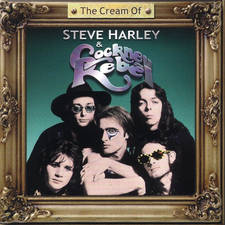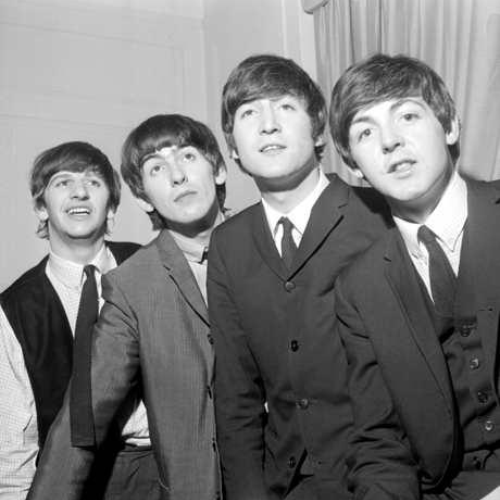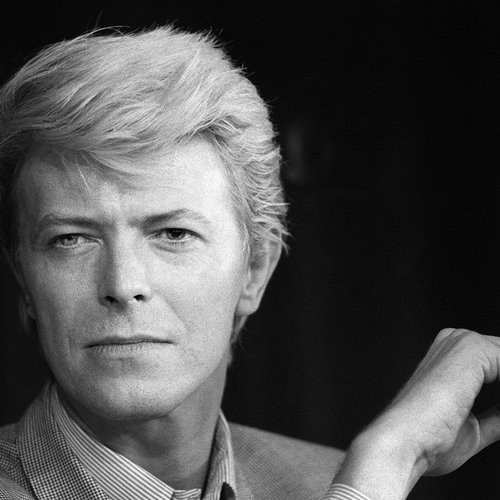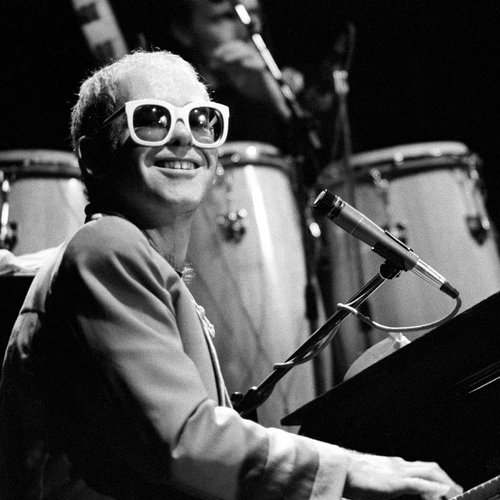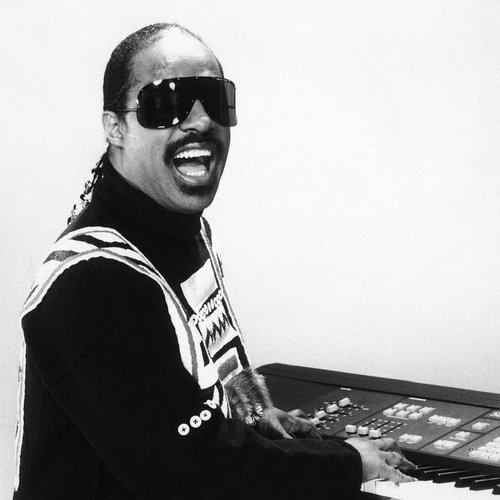All of Pink Floyd's albums, ranked from worst to best
7 June 2024, 12:19 | Updated: 10 June 2024, 16:41

Listen to this article
They were the definitive 'albums' band.
Yes, here at Gold Radio we may have already ranked Pink Floyd's greatest songs, which to the purists might be an act of sacrilege.
The truest manner by which to merit the pioneering progressive rock architects is by their albums as a whole, as they were made to be absorbed that way.
Undoubtedly one of the greatest bands of all time, Pink Floyd revolutionised song composition and the notion of a concept album, exceeding the possibilities of any rock album that preceded them.
Initially led by the psychedelic musings of Syd Barrett after their formation in 1965, the band later evolved into a far more grandiose prospect.

- Pink Floyd's 15 greatest songs ever, ranked
- Pink Floyd: A timeline of all their feuds and fallouts over the years
- Roger Waters review: Ex-Pink Floyd star defies detractors at premiere of divisive Dark Side Redux reimagining
- 'Another Brick in the Wall' by Pink Floyd: The making of the protest song and unlikely hit single

As the four-piece of David Gilmour, Roger Waters, Nick Mason, and Richard Wright, they achieved astronomical commercial success and changed the face of contemporary music.
Though they technically dissolved in 1994 - aside from a handful of rare reunions - Pink Floyd remain one of the best-selling groups of all time, having sold more than 250 million records globally.
So, which of Pink Floyd's impeccable albums did we pick as the best? See for yourselves below:
-
The Endless River, 2014
The Endless River. Picture: Parlophone/Columbia Records Only really a Pink Floyd album in name only, The Endless River was Pink Floyd's final official release in 2014.
A collection of reconstituted compositions from the crossroads of their career in the late sixties/early seventies along with the remainder of songs from The Division Bell era, The Endless River feels like a faded memory of Floyd rather than a finished article.
-
More (OST), 1969
More. Picture: EMI The first Pink Floyd album without any involvement from Syd Barrett whatsoever, More was the score to the film of the same name.
Made up of mostly instrumental works, drummer Nick Mason recalled that Barbet Schroeder's directorial debut was "ideally suited to some of the rumblings, squeaks and sound textures we produced on a regular basis".
Reviews of the album at the time weren't too overly forgiving of its avant-garde experimentalism.
-
Ummagumma, 1969
Ummagumma. Picture: Alamy Perhaps renowned more so for its trippy artwork - created by frequent collaborators Hipgnosis - which utilised the Droste effect, 1969's Ummagumma scored the band their first UK number one album.
Though Pink Floyd themselves don't precisely look back on the entire album with rose-tinted glasses.
Focusing on directionless experimentation perhaps a tad too much in the wake of Barrett's departure, David Gilmour later admitted he "just bullshitted" through his contribution.
-
Obscured By Clouds, 1972
Obscured By Clouds. Picture: Harvest Very much a stop-gap between two of Pink Floyd's finest creations, 1972 album Obscured By Clouds has been offered somewhat of a reappraisal in recent years.
Initially conceived as the score to the French film La Vallée, there is a lack of cohesion to the album - in which the band later became renowned - though thematically the album digs deeper than it had to this point.
'Free Four' for instance sees Waters address the death of his father in 1944 during the Battle of Anzio in World War II, an earth-shattering which shaped the artist's lifelong anti-war stance - his own father was a conscientious objector until Germany's expansion across Europe compelled him to enlist.
-
The Final Cut, 1983
The Final Cut. Picture: Harvest/EMI Records The Final Cut is primarily lyricist Roger Waters at his most megalomaniacal, all but dissolving the creative kinship Pink Floyd shared which got them to this point.
Original intended to become the soundtrack to their surrealist, Bob Geldof-starring 1982 film The Wall, Waters' theme of alienation turned its head to Britain's involvement in the Falklands War.
Whilst there are glimmers of musical excellence, everyone bar Waters had checked out creatively by this point, sadly.
-
A Saucerful Of Secrets, 1968
A Saucerful Of Secrets. Picture: Alamy Syd Barrett's fingerprints can be felt all over 1968's A Saucerful Of Secrets, given he was a member of the band for the most part of the recording.
The only album which saw Pink Floyd perform as a five-piece on 'Set The Controls For The Heart Of The Sun', it was also David Gilmour's first with the band, yet his influence was marginal.
Critics deemed the album inferior to its predecessor, as with Barrett ousted their future was unclear as the murky, mysterious compositions that make up the album.
-
The Division Bell, 1994
The Division Bell. Picture: Alamy Continuing to work as a trio by this point, Pink Floyd proved they were still capable of heady musical heights on 1994's The Division Bell, which turned out to be their final proper album.
The album's closer 'High Hopes' holds up as one of the most evocative songs the band ever composed, though you have to endure the rest of the patchy album to get there.
Still, on the whole, The Division Bell is a poignant swan song for one of the most innovative acts in the history of contemporary music.
-
A Momentary Lapse Of Reason, 1987
A Momentary Lapse of Reason. Picture: Alamy Facing the prospect of life without Roger Waters - after he departed in 1985 having called Pink Floyd a spent force - A Momentary Lapse Of Reason was always going to be a difficult hurdle to hop.
With David Gilmour and wife Polly taking on songwriting duties, Waters later remarked they should've changed their name to Spinal Tap, due to her growing influence.
They were always on a hiding to nowhere on the 1987 album, especially as drafting in bassist Tony Levin made it sound more Peter Gabriel than the Pink Floyd fans adored, with production anchoring their sound in that specific era unlike any other of their records.
Controversy aside, there are still some magic moments of musicianship - 'One Slip' for example - though the die-hards from the decades prior probably disagree.
-
Atom Heart Mother, 1970
Atom Heart Mother. Picture: Alamy 1970's Atom Heart Mother very much sounds and feels like a cornerstone of Pink Floyd's musical capabilities, as they thread together much more epic ideas in the studio, notably the orchestral, 23-minute title track.
Though Waters and Gilmour look back unfavourably on the album, they have individually revived songs 'Fat Old Sun' and 'If' in their solo sets over the years.
The public was far more intrigued by the band's output at this point it seems, with Atom Heart Mother scoring them yet another UK number one album.
It was also the first album artwork not to feature either the band or state their names, a trend which would continue for the next decade.
-
The Piper at the Gates of Dawn, 1967
The Piper At The Gates Of Dawn. Picture: Alamy The Piper at the Gates of Dawn is very much Syd Barrett's creation, and in many ways, was both the beginning and the end of his hallucinogenic career in music.
Taking the whimsical title from his favourite children's novel, The Wind In The Willows, Pink Floyd was driven by Barrett's quirky Britishisms and intriguing experimentalism throughout their 1967 debut album.
More acid-pop than the progressive rock majesty their sound evolved into, The Piper at the Gates of Dawn has been influential in an entirely different way, and is still revered as one of psychedelic music's most important records.
Barrett's contribution to Pink Floyd's legacy is indisputable, it's just a shame it was so fleeting.
-
Meddle, 1971
Meddle. Picture: Alamy Meddle was when the settled iteration of Pink Floyd in the post-Barrett years finally began to maximise their musical niche.
'Echoes', the opulent 23-minute album closer, was seen as the album's signature song, one that indicated the grandiose journey Pink Floyd were immersing themselves in.
With no clear musical direction when conceiving the album, 'Echoes' was the result of a series of music-making experiments that harnessed each band member's potential in tandem.
Both 'Echoes' and 'One Of These Days' propel the album to greater heights, though 1971's Meddle confirmed greatness was very much within their grasp.
-
The Wall, 1979
The Wall. Picture: Alamy The Wall was a true spectacle, from start to finish, especially when you consider the audacious and innovative stage show that Pink Floyd imagined up for the supporting tour.
More rock opera than the transcendent experimentation of old, The Wall was Roger Waters' most personal creation, who tightened his grip on the band's explorative inclinations in favour of strict thematic structure.
Inspired by Waters' childhood abandonment and own isolation amid enormous fame, the album spawned some of Pink Floyd's greatest achievements in 'Comfortably Numb' and 'Another Brick In The Wall Part 2', the latter of which scored them a number hit in the UK and the US, as well as a further twelve countries.
In many ways however, Waters' triumph marked the beginning of the end of Pink Floyd.
-
Animals, 1977
Animals. Picture: Alamy The start of Waters' Orwellian obsession which transformed Pink Floyd into a political powerhouse, Animals - which riffs off of George Orwell's Animal Farm - saw the band making a damning statement about societal decay.
Whether or not the concurrent punk movement encouraged the four-piece to prove they weren't stodgy musicians stuck in their former glories, Pink Floyd reinvented themselves as hard-nosed commentators.
But they're performing at their peak still, in terms of musicianship - particularly the immersive 'Sheep' and 'Dogs' - and despite choosing to release no singles from Animals, the album still clocked in at number two on the UK album charts.
An engrossing concept album, Animals marked the last of Pink Floyd's long-form compositions which put them on the map at the turn of the seventies, and is without doubt one of the band's best.
-
Wish You Were Here, 1975
Wish You Were Here. Picture: Alamy How did Pink Floyd follow up on one of the most impactful albums of all time? With the equally artistic and absorbing Wish You Were Here.
Still drinking from the well of despair that Syd Barrett's breakdown veiled the band in, they pushed the limits of their individual musicality, creating one of progressive rock's most enduring moments in 'Shine On You Crazy Diamond, Pts, 1-5 & 6-9'.
The album's title track is equally as compelling, a stand-out song that sees Pink Floyd at their emotive best, an unlikely guise for them to adopt.
Despite its gloriousness however - reaching the top of the album charts in both the UK and US - Wish You Were Here will forever remain in the shadow of their greatest victory that made it to vinyl.
-
The Dark Side Of The Moon, 1973
The Dark Side Of The Moon. Picture: Alamy Could it be anything else? Arguably one of the most timeless and iconic album artworks of all time, the album's musical content is just as ingenious: it's The Dark Side Of The Moon that we've ranked as Pink Floyd's greatest album.
Both an inevitable choice as much as a deserved one, 'Dark Side' propelled rock music to a new dimension and made Pink Floyd the definitive rock band of the era, achieving their perfect alchemy on their eighth studio album.
An album of outstanding invention - which still holds up today - there are moments of delicate self-reflection ('Us And Them'), scathing capitalist criticism ('Money'), pondering the futility of life in the rat race ('Time'), delving into mental health ('Brain Damage'), and sheer expression of death ('The Great Gig In The Sky') which features one of the most chilling wails in music history.
Understandably, The Dark Side Of The Moon was a vital record of the time, and continues to impact new artists with each passing generation.
It's estimated that one in five households worldwide owns a copy of The Dark Side Of The Moon, in what was a blockbuster release that became the best-selling album of the seventies, and the fourth best-selling album of all time.
